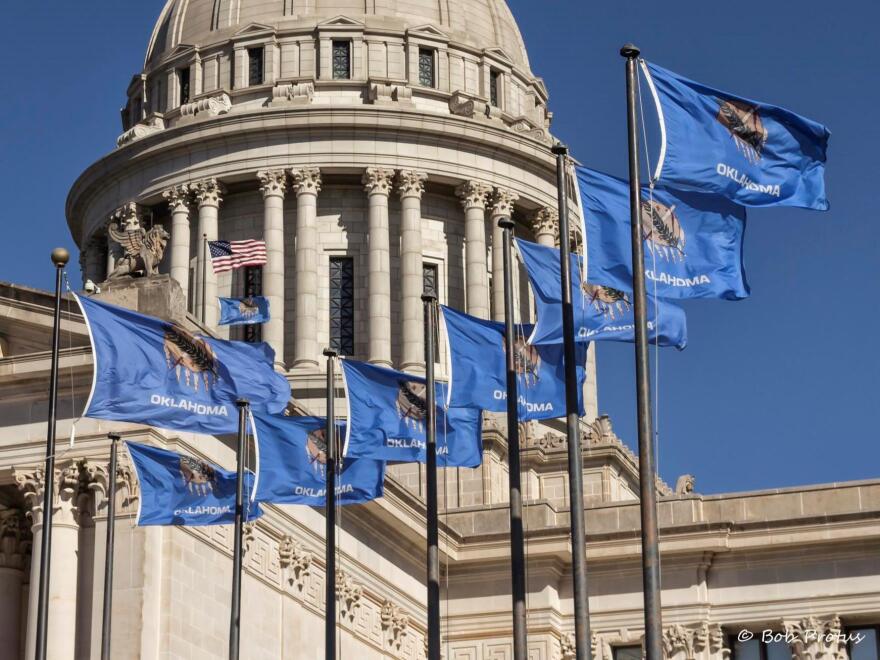Both houses of the Oklahoma legislature want school choice bills to become law, but the two sides have dug in over disagreements about how to craft the legislation.
TRANSCRIPT
Capitol Insider sponsored by the Oklahoma State Medical Association. Keeping Oklahoma physicians informed about advances in medical technologies, treatments and after care. More on the vision and mission of OSMA at okmed.org.
Dick Pryor: This is Capitol Insider - taking you inside politics, policy and government in Oklahoma. I'm Dick Pryor with Quorum Call publisher Shawn Ashley. Shawn, we've been talking about it for several weeks. We've interviewed the speaker of the house and senate president pro tem about it. But the impasse continues over legislation regarding education funding and school choice tax credits for parents. Where does this issue stand now at the Capitol?
Shawn Ashley: On Thursday, the Senate passed its version of the private school and home school tax credits and a $530 million appropriation for common education. Now, the Senate bills are different than what the House passed. The amount of the private school credit is higher and the home school tax credit is smaller and there is an income cap on families that would qualify for them. The appropriations are different, too. The Senate plan includes money for larger pay raises and a $30 million merit pay proposal. And since the money to school districts through the school funding formula rather than outside it like the House plan does, House Speaker Charles McCall urged the Senate on Tuesday to vote up or down on the original House plan. He told reporters if they send it back amended, the bills are dead. But that's exactly what the Senate did.
Dick Pryor: So, what happens next on these bills?
Shawn Ashley: Procedurally, they go back to the House, which could accept the amendments and put the bills up for a final vote. If approved, they would go to Governor Kevin Stitt for his consideration. But that does seem unlikely. The other option would be to reject the amendments, send the bills to a conference committee, and try to work out a deal with the Senate and possibly Governor Stitt there.
Dick Pryor: Shawn, this dispute is taking on the look of a conflict between urban and rural interests. So, is a compromise possible?
Shawn Ashley: Listeners may remember that McCall told us in our interview that the original House plan was what was necessary to get enough votes to pass from his caucus's rural, suburban and urban members and Treat said Thursday on the Senate floor that the income cap on the tax credits was needed in part to be able to garner the votes necessary to pass the bill. That seems to indicate that the bills were carefully balanced within the House and Senate Republican caucuses. But whether that balance can be extended across the rotunda seems tenuous, at least according to their leaders.
Dick Pryor: Since the mass killings at the Covenant School in Nashville, there's been increased focus on what state legislatures across the country are doing regarding school safety. Where does the Oklahoma legislature stand now on bills purporting to protect children and students?
Shawn Ashley: The Senate passed at least three bills addressing that issue. Senate Bill 100 builds on Governor Stitt's executive order last year that requires school districts to have a risk assessment of their school sites, conducted by the Oklahoma School Security Institute, which is a division of the Oklahoma Department of Emergency Management and Homeland Security. Senate Bill 101 creates a $20 million grant program for public and private schools, career tech centers and higher education institutions to improve campus security. The Senate also passed Senate Bill 169, which requires local law enforcement officers and emergency medical service providers to be physically present and directly involved in a minimum of one security drill annually at schools in their coverage area. Now, the House took another approach: the “good guy with a gun” approach. It passed House Bill 2139, which permits local school boards to authorize school personnel, such as teachers, who have a concealed carry permit to carry handguns on school property.
Dick Pryor: There are a lot of gun bills still alive this session. Overall, what are those bills attempting to do?
Shawn Ashley: In simplest terms, expand and protect gun rights. A couple permit firearms to be carried on boats, which currently is not permitted. Another lowers the legal age for purchasing a firearm from 21 to 18. And there are several bills that address the business of firearms. One prohibits companies such as banks and financial institutions that do business with the state from discriminating against firearm businesses. And one bill would create a special license plate for OK2A, the Oklahoma Second Amendment Association.
Dick Pryor: Thank you, Shawn.
Shawn Ashley: You're very welcome.
Dick Pryor: And that's Capitol Insider. Until next time, with Shawn Ashley, I'm Dick Pryor.
Announcer: This is Chip Brantley, co-host of the NPR podcast White Lies. Before we found the man in Vancouver, before we sued the State Department, before we snuck into the graveyard of a federal penitentiary, all we had were the photographs, photographs of a group of Cuban men standing on the roof of a prison in rural Alabama. That's this season on the NPR podcast White Lies.





